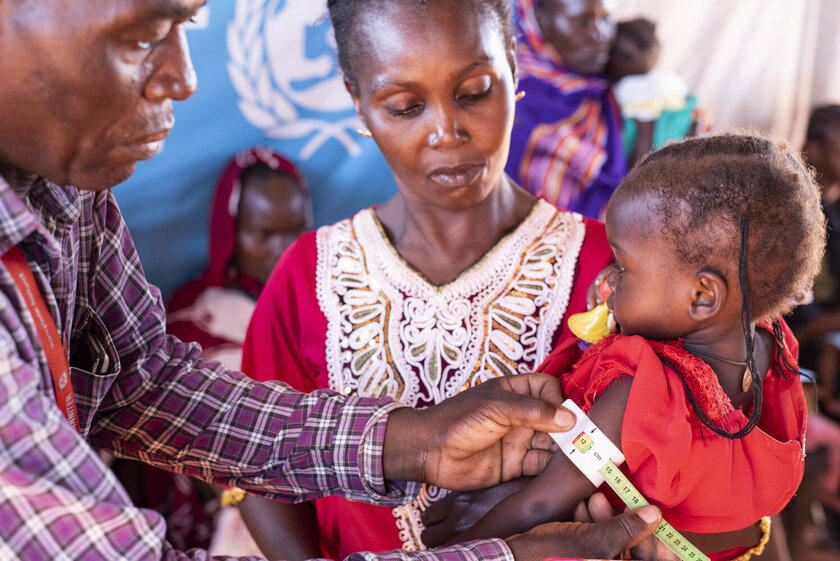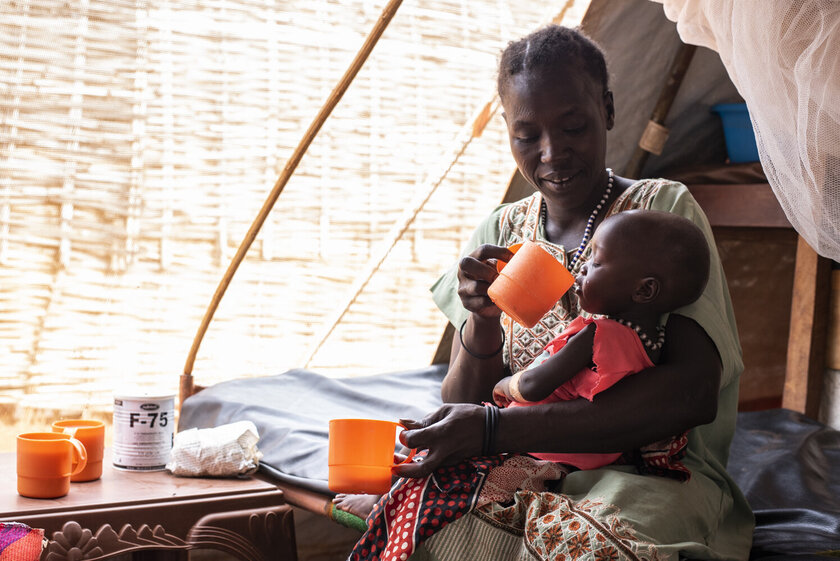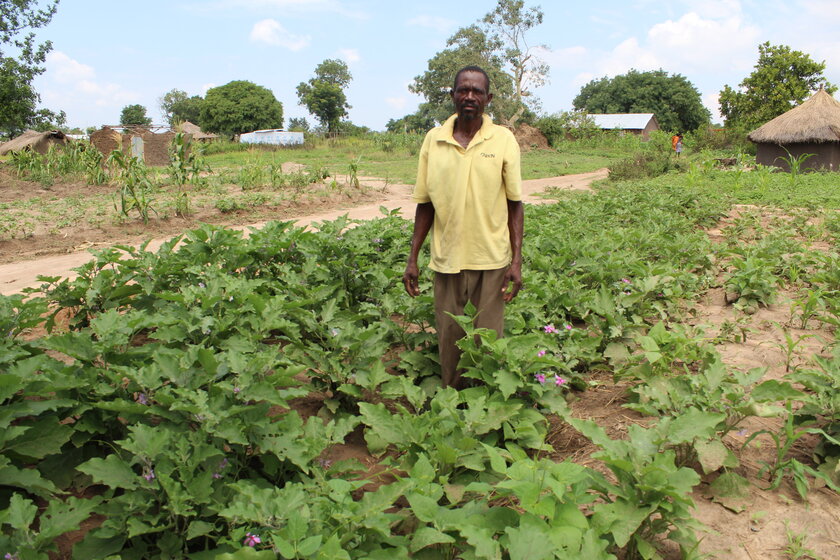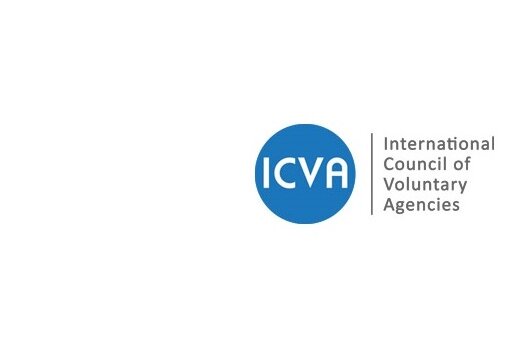"These people are not starving, they are being starved."

Berlin, 31 August 2021
As early as October last year, the United Nations warned that by the end of 2020, the number of people suffering from acute hunger could double to almost 270 million compared to the same period last year. Despite all warnings, 34 million people are on the edge of famine today. Together with more than 260 other aid organisations, we at Johanniter called for greater support in the fight against hunger in an open letter.
According to the Food and Agriculture Organisation of the United Nations (FAO), the number of people affected by acute food insecurity rose to a estimated number of 720 to 811 million people in 2020. Violent conflicts, climate extremes and economic turbulences mean that people in many countries no longer have enough to eat for themselves and their families. The Corona pandemic has dramatically increased this number. Women and children suffer the most.
South Sudan: Estimated 1.4 million malnourished children during dry season
The situation in South Sudan is alarming, where internal conflicts have forced many people to flee. There, our team has been treating malnourished and sick children in a stabilisation centre since 2017.
South Sudan is now facing the greatest food insecurity and highest malnutrition rates since its independence 10 years ago.
"We are particularly concerned about the 1.4 million children and 483,000 pregnant or lactating women who are acutely malnourished and in need of treatment," Dreier adds. 7.2 million people will are need of food assistance in the actual mid-year harvest. The impacts of climate change are evident here: droughts and floods often lead to poor harvests.
Afghanistan: 9 million people in need of support
An effective fight against hunger is hardly possible because UN programmes are chronically underfunded. The World Food Programme is calling for 5.5 billion US dollars to be made available to still be able to prevent the threat of famine. Otherwise, it will not be possible to meet the universal demand for sufficient food for all. Afghanistan is a example herefore: low rainfall in winter, coupled with an ongoing armed conflict, has led to an enormous deterioration in the country's food supply. External aid is necessary.
More than 9 million people are dependent on aid, but only just under half of them can be reached.
266 million US dollars are needed for Afghanistan, which has not been covered so far. Guillermo fears that a prolonged drought, the Corona pandemic and the internal conflict will significantly increase the need in the coming weeks.
Due to the current situation in the country, after the Taliban took over power, it remains unclear how and whether support for the people in the country will still be possible in the future.
What does acute hunger mean?
Acute hunger is the most extreme form of hunger and often occurs in connection with droughts, wars and disasters. The term famine is commonly used for this. Acute hunger stands for malnutrition over a definable period of time, which primarily affects people who are already suffering from chronic hunger.
Programme launched to stabilise malnourished children

To fight malnutrition, we launched a regional programme in South Sudan, Uganda and Kenya in August last year with financial support from the German Foreign Office. In South Sudan, the programme mainly targets children under five and pregnant women. If they show signs of malnutrition, they are provided with supplementary food or referred to our stabilisation centre for inpatient care. Thus, in 2020, we have already been able to treat 513 acutely malnourished and sick children under the age of five in our stabilisation centre and ensure their survival.
Prevent hunger

Many South Sudanese have fled to neighbouring Uganda due to violence and poverty. In recent months, we have been working with our partner CEFORD to help refugee families improve their food production. Over the next three years, we will focus on mothers and their children to improve their nutrition. In addition, our partner CEFORD is building latrines and providing hygiene training, which will help prevent disease. All our actions pay into the global goal of moving one step closer to a world without hunger by 2030.
Secure income and food
To strengthen the resilience of vulnerable people before, during and after disasters and crises, we implement comprehensive income and food security programmes together with our partners.
